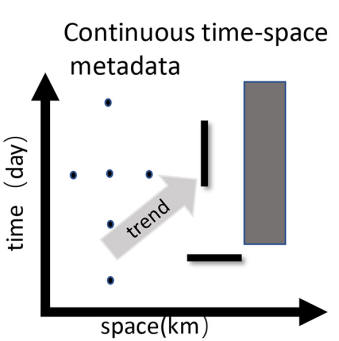

About
TOWER as one of the projects in JETZON will focus on formation and dynamics
of ecosystem in the twilight zone of the Western Pacific Ocean and particularly
the South China Sea.
The Western Pacific Ocean along with the South China Sea (SCS) was not visited by the TARA project, which makes this region a less explored
but with an urgency in ecological research and sustainability regulation. Particularly, the twilight zone between 200-1000m of this region have not been
fully investigated in terms of ecosystem structure, dynamics and in situ activities. Therefore, the mission of TOWER project is to uncover the mysterious
twilight zone of the Western Pacific Ocean before it is completely ruined by human impacts and global climate change.
The South China Sea is a semi-enclosed marginal sea in the tropical northwest Pacific Ocean. It is one of the busiest water channels for crude oil
shipment. In this marginal basin, there is a huge reservoir of crude oil and gas hydrates. Mining of these natural resources, oil shipment and unregulated
fishery have led to increasing impact on the marine environment and life in the twilight zone. Human pollutants from Pearl River, Mekong River and
many others are also discharged into SCS without proper treatments. On the other hand, SCS receives water from the Pacific Ocean and the Indian Ocean,
so that the organisms from open oceans can affect the indigenous inhabitants to some extent. Hence we expect a high biodiversity in SCS but with increasing
threat from the human activities, as the twilight zone is so close to the estuaries with heavy pollutants.

In this project we will bring scientists and engineers together, aiming to obtain high-standard multiple temporal and spatial data with next-generation
ocean research facility. We want to change current methodologies for marine ecological study that relies on sporadic data. Long-term continuous in situ
observations, samplings and experiments will be performed by various apparatuses mounted on deep-sea landers, gliders, ROV and AUV. If possible, we
will carry out long-term in situ molecular experiments and imaging data collection of organisms in different size scales. We will also cultivate bacteria with
isotope labelled inorganic carbon to reveal the deep-sea autotrophic community and estimate carbon assimilation rate. In the twilight zone, the microbes
involving element cycles are the foundation of the ecosystem.


Besides the potential scientific achievements, TOWER can provide a baseline ecosystem assessment for reference by the countries involved. Marine baseline
survey has been ignored for a long period of time in the Western Pacific Ocean and SCS. With a rapid population growth, increasing demand for marine foods
has resulted in unregulated development of fishery industries. Before the fishery industry impacts the twilight zone, the ecosystem biodiversity in this depth
range must be completely investigated. The knowledge and data provided by TOWER project will send warnings to policy makers and inspire young
generation for marine protection and scientific research. At last, TOWER will put efforts on marine education and capacity improvement of developing
counties in Asian.